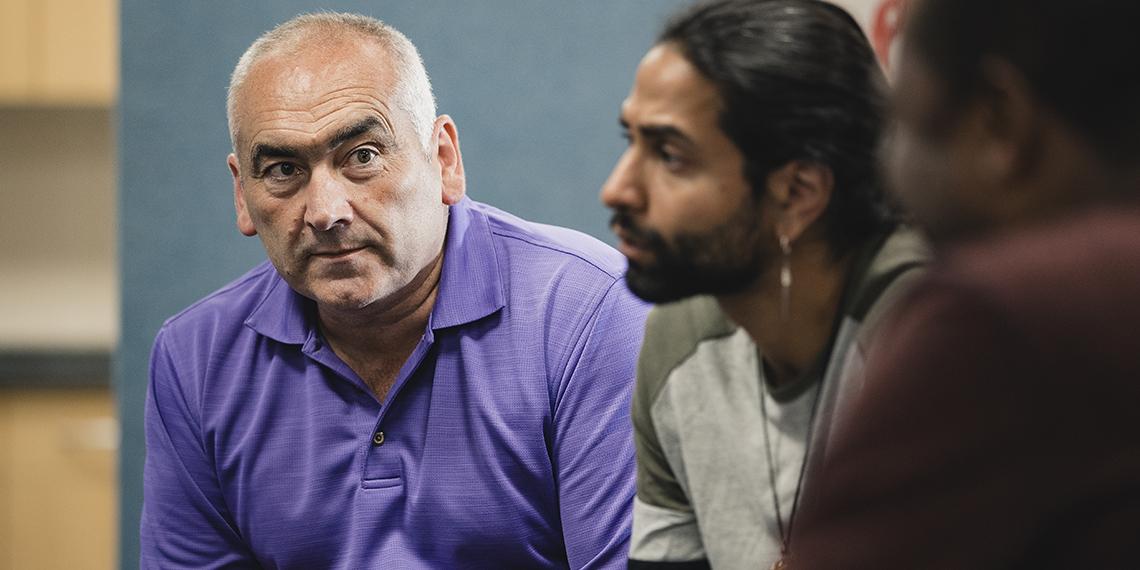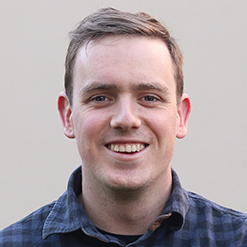You are here
Positive impact at controversial boarding home

Staff at Pukekohe Corps have been positively reconciled with a controversial boarding home they were once banned from visiting.
Opened in 2014, the Wiseguys Men’s Refuge and Community Housing Project has been scrutinised over the last few years following reports of incidences of poor management. Criticisms include allegations of violent crime and drug use.
Located in Kingseat, beside a former psychiatric hospital, the Wiseguys website claims it specialises in helping men who are homeless, ‘have nowhere to go’, or need help getting their lives back on track.
It claims to offer both emergency and long-term housing for up to 50 men and women.
Pukekohe Corps steps in
Wiseguys first came to the attention of Pukekohe staff around February 2017, when residents came to the corps every week in search of food parcels. The men were suffering from a lack of food, poor living conditions and issues around drugs, violence and bullying.
When Pukekohe staff attempted to meet with Wiseguys management in May 2017, they were told not to feed the men as this meant they would have money left over to buy drugs and alcohol.
Corps staff then attempted to assist Wiseguys residents on site, however they were subsequently banned from visiting the premises.
‘Because Wiseguys is a private business we couldn’t visit the site without permission or invitation from them,’ Pukekohe Corps Officer Ted Kim says.
As a result, Ted and his Pukekohe team began advocating with the Ministry of Social Development (MSD), alongside the Salvation Army Social Policy and Parliamentary Unit (SPPU), to intervene and advocate for the extremely vulnerable people who came under the care of Wiseguys.
Progress didn’t occur until November last year when a meeting, advised by MSD, occurred between Ted and the director of Wiseguys.
‘I told him that there was a lack of communication and misunderstanding between us and that we wanted to work together to help the residents at Wiseguys,’ Ted said.
‘He was happy with what I had offered and we were able to be reconnected.’
The outcome of the meeting was that Ted and his team were once again permitted to visit Wiseguys.
‘For the last two and a half years we have fought for the access to those people and now God has opened the door for us,’ Ted said.
‘I’m so grateful and delighted to have been accepted as a friend to the residents at Wiseguys, and am allowed to visit anytime.’
Ted Kim says he and his staff have worked hard to build trust with Wiseguys staff and residents.
‘It wasn’t easy work, especially for our staff, it has been very demanding and sometimes I have had to be mindful of our safety.’
Ronji Tanielui of SPPU says last year his unit began advocating for MP Carmel Sepuloni, the Labour Minister for Social Development, to put pressure on Wiseguys to function correctly.
As a result, Wiseguys is now looking to get ‘Level 3 Social Housing Accreditation’ with the Ministry of Social Development. ‘Which is a really good thing because that means they fall under the parameters and the guidelines of MSD, who can hold Wiseguys accountable,’ Ronji says.
Ted and his team gaining access to Wiseguys is a huge victory for those wanting to work with the refuge, Ronji says. This is good not only from a missional perspective but also from the perspective of holding Wiseguys accountable to the local community.
‘We’ve seen some huge changes in terms of the type of clients, the fact that there are no more women with children on the property is a huge win for us.’
When asked why he believed Wiseguys initially spun out of control, Ronji says it was established in a ‘grey area’ of government policy—it was never clear who was keeping the facility accountable and ensuring it was run as it should.
‘They were set up as a business but they were operating this place as an NGO, as a social service agency, yet it had no capacity for that, not a lot of money and minimal staff,’ Ronji says.
And while Wiseguys were not receiving any government assistance, there were still reports that the Department of Corrections was referring outgoing prisoners.
Ronji says New Zealand laws in this area need to become more ‘flexible’ to prevent this kind of thing happening in the future.
‘We’re always going to find a way to get around something, so we need to be flexible enough to deal with whatever that cunning innovation might be.’
Despite its issues, Ronji believes the Wiseguys directors established the refuge with good intentions. ‘I think it just became overwhelming for them. They had no capacity, they didn’t have the staff or funding.
‘At one point they had about 60 clients staying there. Clients with high needs, high risk … this is complex, so, of course you’re going to lose it.’
Ronji also makes it clear SPPU never had any intention to shut Wiseguys down. ‘People are desperate and there’s very few options. Our intention was always to work alongside Wiseguys and see how we can help and support, and if necessary hold them to account, and that ended up being the case.’
Ted says he now hopes to see the Wiseguys residents getting their lives back on track.
‘There is still a long way to go to lift up the living standards of the place, but one of the big achievements is that they are now feeding their residents three times a day,’ Ted says. ‘It really is a privilege to work with those who are in a devastating situation.’
Ted has talked with Wiseguys management and residents about having an afternoon church service—an idea which was received positively. ‘I really want to bring the Good News and
life there.
‘I, and our team, will do our best to support and work with those vulnerable people who are actually our friends.’
By Hugh Collins (c) 'War Cry' magazine, 18 May 2019, p14-15- You can read 'War Cry' at your nearest Salvation Army church or centre, or subscribe through Salvationist Resources.
